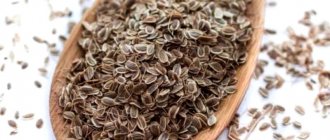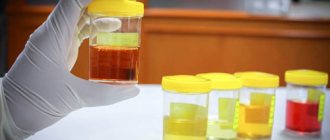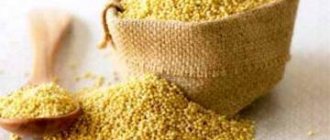The main extragenital cause leading to pregnancy complications is urinary tract infection (UTI).
Diseases of this type are divided depending on the localization of the pathological process into:
- asymptomatic bacteriuria (detection of more than 105 pathogenic microorganisms of one specific type in 1 ml of urine when analyzing two samples taken at a daily interval),
- complicated and uncomplicated upper and lower urinary tract infections.
The last group includes cystitis - a pathology of the bladder of inflammatory nature.
Pyelonephritis and cystitis that develop during pregnancy require especially careful monitoring due to the high risk of serious consequences.
Asymptomatic bacteriuria occurs in most women even before pregnancy.
Without requiring special intervention in a normal situation, this condition becomes the cause of acute renal inflammation in 20–40% of episodes during pregnancy.
That is why, when planning a pregnancy, it is important not only to eliminate acute/chronic inflammation (cystitis or other pathology), but also to “deal with” the asymptomatic process.
Causes of cystitis in pregnant women
Cystitis occurs more often in women than in men. It's all about the structural features of the female urethra (urethra). In women it is short, wide and almost straight. Therefore, it is not difficult for microbes to penetrate into it, and through the urethra they can easily reach the bladder. This is the ascending route of infection - the most common.
Another feature of the female body is that the bladder and genitals are connected by lymphatic vessels. Through them, during inflammation of the genital organs, the infection freely penetrates into the bladder.
These two anatomical features are risk factors for cystitis in women. Pregnant women have chronic cystitis
It can occur for the first time or worsen after a period of remission. There are several favorable conditions for the appearance of chronic cystitis while expecting a baby: an increase in the blood of the pregnancy hormone progesterone, a decrease in immunity.
Types of cystitis:
- non-infectious - occurs rarely, usually with long-term use of certain medications, the chemical composition of which irritates the mucous membranes of the bladder;
- infectious – occurs as a result of infection, can be bacterial, mycoplasmic, fungal, viral, etc., is the most common.
In women, as a rule, with urinary tract infections, microorganisms enter the urethral canal, and then inside the bladder, from the perianal area, located next to the anus, and from the vagina.
The most common causative agents are:
- 80% – Escherichia coli;
- 10-12% – staphylococcus;
- rarely – enterobacteria Enterobacter, Klebsiella, Enterococcus;
- sometimes - chlamydia, mycoplasma, ureaplase and other sexually transmitted infections.
The effect of progesterone on the development of cystitis
In addition to the muscles of the uterus, progesterone also has a relaxing effect on the smooth muscles of other organs. And the bladder is no exception. Due to the decrease in the tone of the walls of the organ, some urine may remain in it after urination. And this is a good environment for the proliferation of microbes that have entered the bladder. A decrease in immunity, which is absolutely natural for pregnancy (the mother’s body needs not to reject the fetus, which is half foreign to her), only plays a role in the occurrence of infectious diseases. So it turns out that in addition to purely female characteristics, pregnancy creates additional favorable conditions for the occurrence of cystitis.
Cystitis: early pregnancy
In the early stages of pregnancy, cystitis can be caused by a number of reasons. Immune suppression (immunosuppression) and hormonal changes in the body are the most important. In pregnant women, against this background, active proliferation of microorganisms, bacteria and Escherichia coli begins in the perianal area and in the vagina, and therefore infectious cystitis is very often observed.
In the first months of pregnancy, acute cystitis can easily be triggered by many factors, for example, allergies to hygiene sprays, spermicides, foams and bath salts, foods such as cabbage, nuts, legumes, etc. Exacerbation of the chronic form of the disease most often causes hypothermia and/or excessive fatigue of the body due to a weakened immune system. Chronic cystitis can also be a relapse that appears in the initial stages of pregnancy - it is at this moment that a woman’s body, due to suppressed immunity, cannot resist infections.
Important! Self-medication is fraught with dangerous complications. A number of drugs, which include, for example, sulfonamides and tetracyclines, are completely contraindicated for pregnant women. Treatment of cystitis is prescribed only by a doctor who, from the very beginning, observes how the fetus develops and how the health of the expectant mother is. Many unpleasant and even dangerous situations such as kidney infection can be avoided by promptly contacting the clinic.
In the early stages of pregnancy, it is necessary to prescribe treatment with extreme caution, since the effect of some medications may threaten normal intrauterine development. The main danger of this disease in pregnant women is that the baby may be born underweight or premature.
Symptoms of cystitis in pregnant women
Pain, cutting, burning mainly at the end of urination
Increased urination (you have to go to the toilet every 30-60 minutes)
Painful sensations above the pubis, which become stronger with pressure in this area and as the bladder fills
Strong urge to urinate, but the amount of urine released at one time is very small
Urine becomes cloudy and may acquire a pinkish tint; weakness, decreased performance
Sometimes body temperature rises to 37.50 C.
Cystitis in pregnant women: complications
Cystitis in the absence of complications does not have a strong effect on the course of pregnancy. But it often serves as one of the first clinical manifestations of much more serious diseases that can cause big problems.
If you self-medicate or ignore cystitis altogether, you can provoke acute pyelonephritis with varying degrees of complications, since the infection from the bladder will inevitably spread up the ureters to the kidneys. Complicated cystitis can lead to miscarriage, artificial termination of pregnancy, and premature birth.
Diagnosis of cystitis in pregnant women
Diagnosis of chronic cystitis is not at all difficult. The diagnosis of cystitis is made based on complaints from pregnant women. They are very characteristic. The main study is a general urine test. The main thing is to pass it correctly. It is also necessary to perform an ultrasound of the bladder and kidneys, and a general blood test.
Rules for collecting urine for general analysis for the diagnosis of chronic cystitis
It is necessary to prepare the container. A glass jar, which needs to be doused with boiling water, or a container purchased in advance from a pharmacy, designed specifically for collecting urine, is suitable. Next, you need to wash yourself thoroughly, blot your genitals with a towel and cover your vagina with a cotton swab. Now the procedure for collecting urine itself: the first portion needs to be “sent” into the toilet, but the second into the prepared container, the third portion also past the jar. All that remains is to tightly close the container with a lid and deliver the urine to the laboratory.
For chronic cystitis in pregnant women
in the urine there are a lot of leukocytes (cells indicating inflammation), as well as a small amount of red blood cells, protein and many bacteria. It is these changes that will be noted on the analysis form.
Since the doctor will prescribe antibiotics for the treatment of chronic cystitis, urine culture is also carried out for flora. This analysis helps to find out which microbe led to the disease, as well as to find out which antibacterial drugs it is sensitive to.
Is it possible to get pregnant with cystitis?
Good afternoon, dear girls! I have been registered on this site since 2011, as soon as I encountered the problem of infertility! Here I learned what ovulation is, cycles, I saw enough of tests and stripes! At first, this support and the realization that you are not alone with such a problem were very important; I emphasized a lot of information for myself. At the same time, I was waiting for my two stripes and my little angel! After about a year of being on the site, I went to the doctors to give up. These included tests, hormones, examinations, spermograms, etc.! I went to a private infertility clinic - compatibility analysis, ultrasound, ultrasound, ultrasound! I didn’t agree to auxiliary methods, since the doctors didn’t find any obvious problems, and there wasn’t much money for it, plus I didn’t want to take hormones and give myself pills! In 2012 I decided to undergo laparoscopy, and I will say that I was operated on by an excellent doctor with golden hands! After lapara, I hoped to get pregnant at least within six months! But that didn't happen! We tried to go to the sea, relax and forget about the problem, but this did not help either, since it was impossible to completely let go of the situation! Every time on day X I shed tears and ate it all with cakes! By the way, I will say that there was no one to support me except my husband, since no one knew about my problem! Further events develop, as it seems to me, in a chain! In the summer of 2015, there was a lot of stress at work, I started taking Magne B6 every day, and in the fall, due to the cold weather, I got severe cystitis! We decide to warm up and go to the sea to slightly heal the effects of cystitis! The vacation was great, but when I arrived home, the discomfort remained, I went to the pharmacy and for the second time in my life I took the antibiotics Unidox Solutab (the first time was when I was young), just to get rid of cystitis! I also order myself Gynecol tablets based on boron uterus and start drinking them in order to get rid of the unpleasant consequences! Plus, we buy an aroma lamp and almost every day at night I charge it with sage! So, New Year 2021 is coming and after taking Gynecol tablets, I begin to notice changes in my body, as if they were hormonal! My breasts became a little fuller, my periods became a little different, and in general, something changed! I decide for myself that January will be the most important month in our lives, this time everything will work out! We are trying in January, as it should be in the community, every other day! And on day x my monsters came! To be honest, this was the last straw, I completely lost hope and didn’t try to get her back, I was ready to tell everyone and with my head held high I came to the idea of what it means we will live without children! My husband supported me! We even made plans that we would go to live at sea! But fate decreed otherwise, in the next cycle, we saw 2 stripes and couldn’t believe our luck, the test was done on the 5-6th day of the delay, since I couldn’t even imagine it and was just waiting for my period! Well, now my angel lies and sniffles next to me, and I instill hope in everyone who has lost Her that miracles do happen! Don’t judge for mistakes and I may not remove them under the cut, I’m very inexperienced in this regard! Thank you to everyone who read it
Treatment of cystitis in pregnant women
When treating cystitis in pregnant women, diet is mandatory. It is necessary to avoid all foods that may irritate the bladder. The list of forbidden foods is headed by spicy, salted, smoked and pickled foods. It is worthwhile to temporarily reduce the amount of protein consumed (reduce the amount of fish, meat, cottage cheese, cheese, etc.) in the diet. It is recommended to avoid foods rich in starch (potatoes, baked goods), as well as soda and sweets. Alcohol, strong tea and coffee are strictly prohibited.
Pregnant women with cystitis need to drink as much as possible, of course, if there are no contraindications to this. You should drink 2-2.5 liters of liquid per day. This will help remove inflammatory products from the body as quickly as possible. The best drinks are cranberry juice or juice. These drinks contain substances that have an antimicrobial effect. Watermelon, carrot and apple-beetroot juices will help relieve burning when urinating. It is worth giving preference to whole grain porridges, vegetables, fruits and freshly squeezed vegetable juices.
Medicinal herbs (bearberry, chamomile, rose hips, etc.) have an antibacterial effect. They are included in the fees that can be purchased at the pharmacy. Decoctions are prepared from them and taken several times a day.
How does cystitis manifest in women during pregnancy?
During pregnancy, symptoms of a disease such as cystitis include:
- frequent urge to urinate (a slight increase in the frequency of urination is normal when the enlarging uterus puts pressure on the bladder);
- various urination disorders (uncontrollable urge, small portions, etc.);
- pain in the suprapubic region;
- the presence of 10 or more leukocytes and bacteria in 1 μl of urine.
Pain due to cystitis during and after urination during pregnancy has varying degrees of severity and character (burning, stinging, intensification towards the end of urination, etc.).
Sometimes, with cystitis during pregnancy, blood may be found in the urine.
Such hemorrhagic cystitis during pregnancy is classified depending on the amount of blood:
- I degree - without visible marks;
- II degree – with visible blood;
- III degree – with blood and clots
- IV degree – with severe bleeding, blockage of the urinary tract with blood clots (requires emergency medical care!).
Additional possible manifestations of a condition such as cystitis during pregnancy:
- purulent discharge from the urethra;
- urethral pain, discomfort;
- soreness in the abdomen/back;
- slight increase in temperature, etc.
Medicines for the treatment of cystitis in pregnant women
Pregnant women with cystitis are prescribed antibiotics, but only those that are approved during pregnancy for the treatment of cystitis. In the first trimester, these are drugs from the aminopenicillin group. From the second trimester it is allowed to take nitrofurans, aminopenicillin, and antibiotics from the cephalosporin group. Treatment of cystitis during pregnancy takes an average of 5-7 days. The expectant mother should not use heating pads or hot baths for cystitis. This can provoke a threat of termination of pregnancy.
Is cystitis dangerous during pregnancy?
Acute cystitis is the most common UTI among pregnant women.
Modern medicine explains in detail why cystitis is dangerous during pregnancy?
In general, UTIs are the cause of many serious disruptions to the normal course of labor and pregnancy.
Such consequences of cystitis during pregnancy include:
- anemia;
- increased blood pressure;
- premature birth/rupture of water;
- low birth weight (less than 2500g) of the child and increased risk of perinatal mortality.
Sometimes cystitis is caused by microorganisms that cause sexually transmitted infections.
In this case, the disease often occurs along with other diseases.
For example, inflammatory diseases of the pelvic organs.
This can lead to a problem such as frozen pregnancy (cystitis in this situation is just one of the manifestations of the underlying pathology).
The fact that cystitis does not have the best effect on pregnancy explains the interest of medical researchers in diagnosing and treating the disease.











